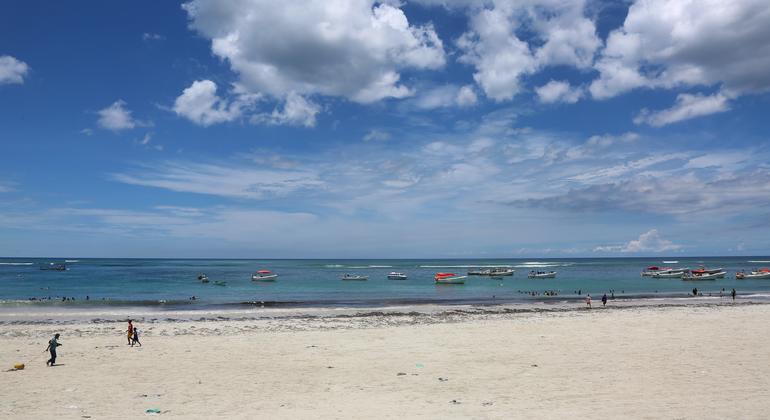The recent terrorist attack at Lido Beach in Mogadishu, Somalia, has once again highlighted the ongoing threat of violence and instability in the region. The attack, which occurred late on a Friday night, involved a suicide bombing followed by a gun battle between militants and security forces. The Al-Shabaab terrorist group has claimed responsibility for the attack, which resulted in the tragic loss of at least 37 lives and left more than 200 people injured, some critically.
The international community has swiftly condemned the attack, with the United Nations Secretary-General expressing deep sadness at the continued suffering of the Somali people due to terrorism. In a statement issued by Farhan Haq, Deputy Spokesperson for the UN chief, it was emphasized that the United Nations stands firmly with the Government and people of Somalia against terrorism and violent extremism. The UN team in Somalia also denounced the attack, highlighting Lido Beach as a popular recreational spot for Somalis and condemning the targeting of such a peaceful location.
James Swan, Acting Special Representative of the Secretary-General for Somalia, expressed his condolences to the victims of the attack and reaffirmed the United Nations’ support for the Federal Government of Somalia in its efforts to maintain peace, security, and stability in the country. The attack at Lido Beach is a stark reminder of the challenges facing Somalia, a country that has been plagued by conflict and instability for decades.
Friday night’s attack was one of the deadliest in Somalia since the October 2022 bombings in Mogadishu, which claimed the lives of more than 120 people and left over 300 others injured. These tragic events serve as a grim reminder of the persistent threat of terrorism in Somalia and the urgent need for international support to combat this scourge.
The attack at Lido Beach has shaken the Somali community and sparked outrage both within the country and around the world. The senseless violence and loss of innocent lives have once again underscored the urgent need for a comprehensive and coordinated response to the threat posed by extremist groups like Al-Shabaab. The international community must stand in solidarity with the people of Somalia and support their efforts to build a peaceful and stable future for their country.
In the aftermath of the attack, the Somali government has vowed to redouble its efforts to combat terrorism and protect its citizens. Security forces have been deployed to ensure the safety of the population, and investigations are underway to identify those responsible for the heinous act. The Somali people have shown resilience in the face of adversity, coming together to support one another and denounce the violence that has plagued their country for far too long.
The attack at Lido Beach has also reignited discussions about the root causes of extremism in Somalia and the broader Horn of Africa region. Poverty, marginalization, and lack of economic opportunities have been identified as key factors driving recruitment to extremist groups like Al-Shabaab. Addressing these underlying issues will be crucial in preventing future attacks and promoting long-term stability in Somalia.
International partners have expressed their support for Somalia in the wake of the attack, pledging to provide assistance in the areas of security, development, and humanitarian aid. The United Nations and other organizations have reiterated their commitment to standing with the Somali people in their quest for peace and prosperity. Concerted efforts are needed to address the root causes of conflict in Somalia and support the country’s transition to a more stable and secure future.
As the Somali people mourn the loss of their loved ones and grapple with the aftermath of the attack at Lido Beach, the international community must remain vigilant in its support for Somalia. The fight against terrorism is far from over, and continued cooperation and solidarity will be essential in the efforts to bring peace and stability to this troubled region. Somalia’s path to recovery will be long and challenging, but with the support of the global community, there is hope for a brighter future for the country and its people.









